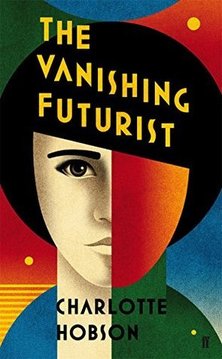| Mankind … was only a half-designed product that had taken shape by accident rather than through conscious choices. In many ways we were not so different from the millions who seek self-improvement today … hopeful that with self-awareness human beings are capable of living together in harmony. In May 1914, “much against the advice of my parents” twenty-something Gerty Freely leaves her home in Cornwall to take up a post as governess to the younger children of Kobelev family in Moscow. She’s quickly beguiled by the lively, liberal and chaotic household comprising the family, their servants and former employees, and various hangers on, including fledging quantum physicist, Nikita Slavkin. When war breaks out in Europe, Gerty is happy to remain with her friends rather than return home. |
I’m not a great historian, but I love novels that bring a new perspective to the past. As Gavin McCrea did with Marx and Engels, Charlotte Hobson takes a sideways look at the birth of communism. While bringing a touch of humour to the hypocrisy and self-delusion of what, a century on, we see as the losing side of history, the characters’ optimism and dedication to the cause remain convincing. This was a period of monumental creativity, with (as explained in an afterword) a flourishing of the arts and the development of new discipline of psychoanalysis (explored in another novel set in Russia around the same time, Zugzwang), coming not so long after the mind-blowing ideas about natural selection put forward by Darwin. Why shouldn’t the young communards have thought themselves at the forefront of something similar?
Thanks to Faber and Faber for my review copy.
As a former student of the social structures of the workplace, I was interested in how the novel illustrated the influence of Taylor’s ideas of scientific management on the communards, imposing strict routines to improve efficiency. Sadly, we find the same tendency to treat humans as machines within the current capitalist system, such that the postman who delivers my books has to make up time if we’re slow to answer the doorbell. (Despite this, he’s always friendly.) Since the social profits of maintaining relationships can’t be measured, they’re factored out of the system. This craziness feeds in to my response to this week’s flash fiction challenge.
Play Prohibited
| It greeted him when he opened the curtains each morning. Rusted chains. Splintered wood. Weeds thrusting through the cushioning layer of bark. When he was small, he’d asked what lurked behind the padlocked gate. “Danger,” said his mother, but now he knew the only danger lay in failing to tame his desires. His hours were regulated: six to seven for his paper round; seven to eight breakfast and the violin. Nineteen minutes to walk to school. Seventeen to return at the day’s end. But they couldn’t control his sleeping hours. He’d visit the playground in his dreams. |























 RSS Feed
RSS Feed





















